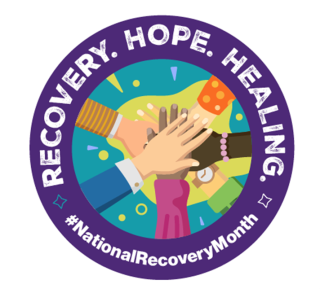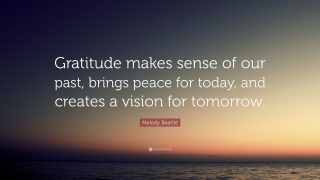 September marks recovery month and this year the theme was Recovery is REAL: Restoring Every Aspect of Life, highlighting the holistic nature of recovery. Keeping that in mind, I asked several amazing women in recovery to talk about different aspects of life they feel have been restored in their recovery journey and what specifically helped them. Read below to hear how these women have experienced that restoration firsthand.
September marks recovery month and this year the theme was Recovery is REAL: Restoring Every Aspect of Life, highlighting the holistic nature of recovery. Keeping that in mind, I asked several amazing women in recovery to talk about different aspects of life they feel have been restored in their recovery journey and what specifically helped them. Read below to hear how these women have experienced that restoration firsthand.
“The benefits of Al-Anon for me would be the progressive restoration of balance and truth, in and around my life. I am learning to keep the focus on myself and not become swept up in others’ lives where it is not my place to intervene/interfere. In this process of awareness I am realizing that my Higher Power/ spiritual compass has been alongside me the entire time; this has brought about a realization that I feel better when I invite my Higher Power into my life versus alongside. Al-Anon meetings and having a sponsor have been monumental over the last year and I am grateful I have a place where I belong and a Sponsor who shows me how she has walked through the program”.
“I went to Celebrate Recovery because I was looking for something faith-based and geared towards all kinds of people. It’s for anybody with any hurts, habits, and/or hang-ups. I also liked the fact this one was on a Friday night, my spouse and I could attend together, they had childcare, and provided dinner. My spouse never went. God had other plans. I kept attending and I eventually found it to be a meeting for me. The music brought comfort, the prayers brought me comfort, the testimonies brought me comfort, and the lessons brought me comfort. Celebrate Recovery brought me comfort and it was a safe space. Eventually there was no other place I wanted to be on a Friday night My faith started to grow, and I was eager to learn more. I knew I wanted what I remembered my grandparents, who were people of strong faith, having. I was able to be open about my doubts without judgment. I was able to share my struggles, addictions, and grief. No matter what I did or thought- they accepted me. I was able to surrender many many times! I was also able to branch out and join a church. I was in my early thirties with a young child struggling with so much and I needed help. Celebrate Recovery was exactly the help I needed. Celebrate Recovery helped me grow spiritually and allowed me to just show up. It opened many doors for me and my daughter and still does. Celebrate Recovery not only watered that seed that my grandparents planted, but it branched out and continues to grow. Celebrate Recovery has restored my faith”.
“Before entering recovery and attending AA, I was so isolated from the security in my relationships with my family and friends; the idea of a romantic partner felt so distant to me. I went through many painful things that left me disgusted by love and questioning if it even existed. I didn’t think anybody could ever love me or that I truly deserved it. I was crippled in fear and alone for many years. I was forced to be okay with myself, learned to respect myself, and eventually I began to love myself. Now, I am in an amazing, fulfilling and trusting relationship that challenges me, changes me, and on the best days it is pure harmony. My friendships are so honest and authentic that I feel overwhelmed by connection and opportunity. I’ve been able to truly appreciate my family of origin and build a family of my own with a beautiful and joyful daughter and a son on the way. I don’t forget the days where I felt incapable of giving and receiving love. Whether the future holds sunshine or thunderstorms I know I will be okay, because thanks to those years- I know myself. Recovery helped me restore myself, my relationships, and my belief in love.”
Recovery Month may have ended, but recovery itself is lived one moment at a time. Each story shared is proof that even in struggle, there is resilience; even in loss, there is renewal. Recovery is not only possible – it’s happening every day, in real and beautiful ways!

 person. We’ve been fortunate to be a part of thousands of recovery journeys over the years and it certainly fuels our passion for what we do and keeps hope alive for future clients.
person. We’ve been fortunate to be a part of thousands of recovery journeys over the years and it certainly fuels our passion for what we do and keeps hope alive for future clients. Happy New Year from Chrysalis Center! As we embark on 2025, we look back upon all that was accomplished in 2024 and are excited about the prospect of what is to come moving forward. We are proud to share that our outcomes for 2024 were outstanding! First and foremost, client satisfaction was rated extremely high. Ninety-five percent of those who completed the survey strongly agreed or agreed that they were satisfied with the services they received and would recommend Chrysalis to family and friends. With acceptance and creating a healing environment being paramount to our vision and values, we were thrilled to see that 98% of respondents reported feeling welcome and comfortable at Chrysalis and 97% of clients saying their experience was helpful.
Happy New Year from Chrysalis Center! As we embark on 2025, we look back upon all that was accomplished in 2024 and are excited about the prospect of what is to come moving forward. We are proud to share that our outcomes for 2024 were outstanding! First and foremost, client satisfaction was rated extremely high. Ninety-five percent of those who completed the survey strongly agreed or agreed that they were satisfied with the services they received and would recommend Chrysalis to family and friends. With acceptance and creating a healing environment being paramount to our vision and values, we were thrilled to see that 98% of respondents reported feeling welcome and comfortable at Chrysalis and 97% of clients saying their experience was helpful.

 Finally, I am very excited to announce the promotion of two long-term Chrysalis Center employees to leadership! Lauren Francis, MA, LPA is our new Clinical Director. Lauren has been with us for over a decade now in various roles (starting out as an undergraduate intern) and brings new ideas and energy to all aspects of programming here at Chrysalis. Don’t worry, she’ll still be leading the outpatient exposure meal group she created and has fostered over the past several years. Macy Baynor, MSW, LCSW is our new Assistant Clinical Director and will be heading up our training program and outreach efforts. Again, not to worry, she will also still run our Adolescent Recovery Circle (ARC) and exposure meal groups for teens. For those who don’t know, we precept doctoral practicum students, masters in social work interns, and counseling interns from various programs, hoping to share our clinical knowledge and eating disorder expertise with the next generation of professionals. I know that Lauren and Macy’s compassion, creativity, and commitment to exceptional care will surely contribute to Chrysalis Center’s mantra of “Thrive in 2025!”
Finally, I am very excited to announce the promotion of two long-term Chrysalis Center employees to leadership! Lauren Francis, MA, LPA is our new Clinical Director. Lauren has been with us for over a decade now in various roles (starting out as an undergraduate intern) and brings new ideas and energy to all aspects of programming here at Chrysalis. Don’t worry, she’ll still be leading the outpatient exposure meal group she created and has fostered over the past several years. Macy Baynor, MSW, LCSW is our new Assistant Clinical Director and will be heading up our training program and outreach efforts. Again, not to worry, she will also still run our Adolescent Recovery Circle (ARC) and exposure meal groups for teens. For those who don’t know, we precept doctoral practicum students, masters in social work interns, and counseling interns from various programs, hoping to share our clinical knowledge and eating disorder expertise with the next generation of professionals. I know that Lauren and Macy’s compassion, creativity, and commitment to exceptional care will surely contribute to Chrysalis Center’s mantra of “Thrive in 2025!”



 “You want to know what it takes to be in recovery? All you got.”
“You want to know what it takes to be in recovery? All you got.” ear.
ear.
 experienced psychologist, Meghan also fulfills the role of Outreach Coordinator for our practice. Her warm, relational style and knowledge about eating disorders makes her a perfect fit for both these jobs!
experienced psychologist, Meghan also fulfills the role of Outreach Coordinator for our practice. Her warm, relational style and knowledge about eating disorders makes her a perfect fit for both these jobs! ried, and most importantly we healed together. I still use my look book of quotes and inspirations that one of the ladies created as a group ending project and gifted each member with. I look at it when I’m feeling anxious or need to be reminded of the journey to heal my wounds that mindful living support group lead me to.
ried, and most importantly we healed together. I still use my look book of quotes and inspirations that one of the ladies created as a group ending project and gifted each member with. I look at it when I’m feeling anxious or need to be reminded of the journey to heal my wounds that mindful living support group lead me to.



